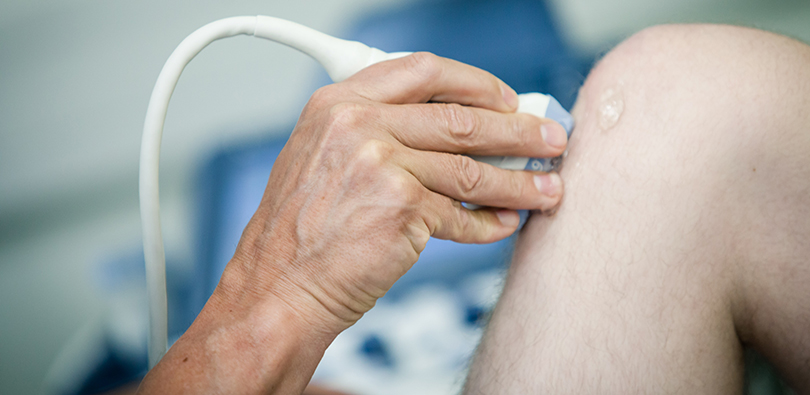
The Arthritis Research UK Centre for Sport, Exercise and Osteoarthritis, which involves three NCSEM-EM partners, has been awarded a further £2M from Arthritis Research UK to continue its research into improving the understanding of the effects of sport and exercise on joint health and osteoarthritis.
First established in 2013, the Centre is led by Nottingham University Hospitals NHS Trust and continues as a consortium of six universities: Nottingham, Oxford, Southampton, Bath, Loughborough and Leeds. The Centre consists of an established group of world-leading researchers in sport and exercise medicine, orthopaedics, rheumatology, skeletal muscle biology, physiotherapy, podiatry, occupational therapy, epidemiology and physiology.
The first five years of Centre funding (2013-17) focused primarily on research with elite sports including Olympic athletes, professional footballers, cricketers and rugby players. The next five years’ research (2018-22) will build upon existing research findings to answer the following questions in recreational athletes and exercisers:
- Can we identify risk factors and phenotypes (‘bodytypes’) that predict the onset and progression of symptomatic osteoarthritis (OA) in athletes and exercisers? (Prevent)
- What is the effectiveness of conservative interventions for the prevention and management of OA to enable lifelong physical activity? (Care)
- How can we identify the effects of sport and exercise on the quality of life for those at risk of, or currently living with OA: physical, psychological and social wellbeing? (Transform)
The Centre will continue to work with sports representatives, patients, the public and carers, to answer these questions.
Professor Mark Batt, Director of the Arthritis Research UK Centre, says the new research aims to improve the health and quality of life of people living with or at risk of developing osteoarthritis: “Having learned a great deal about the impact of sport, exercise on joint and muscle health by working with athletes over the last five years, this funding will enable us to answer fundamental questions about preventing, treating and transforming the lives of people with osteoarthritis.”
“The Centre has established expert teams from a wide range of disciplines who have collaborated nationally and internationally to improve our understanding of the effects of exercise and injury on musculoskeletal health, including osteoarthritis. Now we will be able to continue to expand our knowledge and develop the next generation of researchers in these fields, working directly with patients, communities and sports people.”
Osteoarthritis is the most common form of arthritis and is estimated to affect over 8 million people in the UK. It is a long-term condition that can affect any joint but is most frequently seen in the small joints of the hands, the spine, hips and knees. It causes pain, stiffness and swelling in the joints, which can in turn lead to a lack of mobility and the ability to carry out day-to-day activities. Ten percent of the world’s population aged 60 years and older is estimated to have symptoms of osteoarthritis, but little has been known about the triggers which lead to its development or how it could be prevented.
Natalie Carter, Head of Research Liaison & Evaluation at Arthritis Research UK, says: “Through working with elite footballers, cricketers and rugby players, the centre has already significantly increased our understanding about the potential long-term impact of sport on the joints. Over the next five years, we hope this research will also help us to pinpoint links and uncover risk factors for osteoarthritis in the wider population, which could in turn lead to innovative ways to treat or prevent the condition, and improve the quality of life for people living with osteoarthritis.”